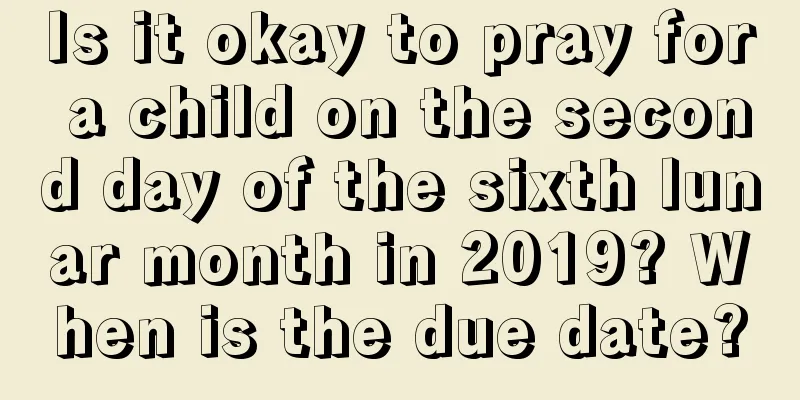What are the customs and habits during the Spring Festival? What taboos should be paid attention to during the Spring Festival?

Introduction: The lunar calendar and the 24 solar terms are closely related in the development of farming culture. The Beginning of Spring is the first of the 24 solar terms, which shows its importance. So, are there any customs for the Beginning of Spring? Are there any taboos that I should pay attention to? Now, let’s follow the editor to learn about it. A year's plan begins with spring, and the Spring Festival is an important traditional festival of ours. Do you want to know more about the Spring Festival? Come and take a look at the Spring Festival special topic carefully prepared by Mr. Shui Mo!Beginning of Spring CustomsDietary CustomsSpring pancakes: filling (mainly radish, bean sprouts, beans)Spring plate: It is mainly made of vegetables, such as lettuce, fruits, cakes and candies, which are placed on a plate (or put together into a plate) and given to relatives and friends or eaten by oneself to welcome the spring. There are five main items on the plate: fruits, vegetables, candies, cakes and bait. The main vegetables are: bean sprouts, radishes, leeks, spinach, lettuce, beans, eggs, and shredded potatoes. Du Fu's "Beginning of Spring": "On a spring day, I eat fresh vegetables on a plate. Suddenly I remember the time when plum blossoms bloomed in the two capitals." Spring rolls (spring silkworms): "Sui Shi Guang Ji" records: "The rich families in the capital make silkworms called 'Tanguan silkworms'. Because they are made on the beginning of spring, they are also called 'Tanchun silkworms'." Eating radish: Ming Dynasty’s Zhuo Zhong Zhi states: “At the beginning of spring, everyone, regardless of their social status, chews radish, which is called ‘eating radish’. Ju Mang GodJu Mang is the god of spring, that is, the god of plants and life. The image of Ju Mang is a human face and a bird body, holding the rules. On the day of the Beginning of Spring, the folk custom is to celebrate spring events. As early as the Zhou Dynasty, there was a custom of setting up the East Hall to welcome the spring, which shows that the tradition of offering sacrifices to Ju Mang has a long history.In Zhejiang Province, people welcome the spring one day before the beginning of spring. On the day before the beginning of spring, the god Ju Mang is carried out of the city to the mountain, and sacrifices are offered to Tai Sui at the same time. Tai Sui is the god of the year. He guards the year and is in charge of the good and bad fortune of the year. Therefore, people often offer sacrifices to him. When welcoming the gods, there are many activities such as large-scale drumming, carrying pavilions, local operas, yangko, and bull-beating. After being carried into the city from the countryside, people lined the streets to watch and compete to throw grains, which was called watching the welcoming spring. When Shandong Province holds a festival to welcome spring and offer sacrifices to Ju Mang, the weather conditions of that year are predicted based on Ju Mang's clothing: wearing a hat means warm spring, while a bald head means cold spring, wearing shoes means more spring rain, while being barefoot means less spring rain. Other areas post New Year pictures such as "Spring Breeze" and so on. In Guangzhou, people beat drums to drive away the plague and pray for peace around the beginning of spring. Whipping the Spring OxWhipping the Spring Ox, also known as Whipping the Earth Ox, has an early origin and has been preserved since then, but the custom is performed in spring.It was popular in the Tang and Song dynasties, especially after Song Renzong promulgated the "Earthen Ox Sutra", which made the custom of whipping the earthen ox more widespread and became an important part of folk culture. The significance of whipping the spring ox is not limited to sending away the cold and promoting spring ploughing, it also has certain witchcraft significance. People in Shandong province smash clay cows into pieces and scramble to grab the spring cow soil, which is called "grabbing spring". It is considered auspicious to grab the cow's head. There are also tea picking and spring ox worship activities, and in Hubei Province, turtle crowing activities are held to herald the coming of spring. In addition to the Spring Ox picture on the imperial calendar, the Spring Ox picture is also commonly engraved in New Year pictures from all over the country as a auspicious picture during the Spring Festival. Taboos on the Beginning of SpringTaboo 1: On the day of the Beginning of Spring, married girls cannot return to their parents’ home. Why? Spring is the beginning of the year. In ancient times, when a woman got married, she belonged to her husband's family. She could not bring the luck of her husband's family back to her parents' home. Also, when she went back to her parents' home in spring, another spring would come, and she would get married again.Taboo 2: Do not see a doctor on the day of the beginning of spring. If you do, it means you will have no good luck for the whole year. This statement is just to seek good luck, just like not seeing a doctor on New Year's Day. Taboo three: Don’t get a haircut on the beginning of spring, as it is unlucky. Fa refers to the plants in the human body. When the weather becomes warmer with the beginning of spring, plants begin to grow. To damage the newly born plants is against the principle of plant growth in the universe. This is a reminder for people to follow the five elements of nature in everything they do! Taboo four: Don’t lie down on the day of the Beginning of Spring. Sit or stand up and walk around. This means that spring warms the earth. This day is the time when Yang energy begins to rise. You should stand or sit to welcome the arrival of the new year. For healthy people, welcoming the spring is a good habit. Taboo five: Avoid quarreling, do not utter foul language, do not engage in verbal disputes, be harmonious and peaceful, and welcome the arrival of spring happily. This is a good tradition and a virtue. The Beginning of Spring is the beginning of the year. If there are quarrels on the Beginning of Spring, the whole year will be unlucky, with troubles and all things going badly. Therefore, you should make good adjustments on the Beginning of Spring and greet the new year happily. Taboo six: Do not move on the beginning of spring. This is a time of handover, the atmosphere is mixed, and relocation is naturally inappropriate. If there is turbulent relocation at the beginning of the year, how can there be a peaceful life in the new year? Those who follow the will of heaven and earth, and live in harmony with nature, will surely be blessed by heaven and have good fortune. Summary: Through the above article, we know some customs and taboos about the Beginning of Spring. We hope that these contents can provide some reference for everyone. I wish you all can be full of energy in the new year to welcome a new life and work, and set out towards a new and beautiful vision! After reading this article, there are more exciting content in the Spring Festival special topic, let’s take a look! |
Recommend
Is it auspicious to get engaged and get a marriage certificate on the second day of the third lunar month in 2020? Is it a good idea to get married?
Getting married is not only about choosing a good...
Is it suitable to open a business on the 28th day of the fourth lunar month in 2020? What time does the 2020 Xiaoman Festival start?
Introduction: Opening a business is also an import...
If you get pregnant in the seventh month of the lunar calendar in 2021, when will you give birth? What should I pay attention to?
It takes a certain amount of time from pregnancy t...
Which direction is the God of Happiness on the second day of the sixth lunar month in 2020?
The sixth month in the lunar calendar is the firs...
Detailed analysis of the fate of a baby girl born on March 19, 2022
The third month of the lunar calendar is the third...
How many days are left until the Spring Equinox in 2021? Countdown to the Spring Equinox!
The Spring Equinox is also one of the 24 solar ter...
Zodiac sign of a child born on July 19, 2021 in the lunar calendar. Is he a Virgo?
The issue of zodiac signs is also a matter of conc...
What day is September 19th in the lunar calendar 2017? What month and date is it?
The ninth month of the lunar calendar marks the b...
Is it a good idea to pick up the car on the Double Ninth Festival on the ninth day of the ninth lunar month in 2020?
Is it a good idea to pick up the car on the Doubl...
What are the customs and practices of Ghost Festival? What can’t you do during the Ghost Festival?
The Zhongyuan Festival is a traditional Chinese cu...
Is the fourth day of the seventh lunar month in 2018 an auspicious day for praying? How is today's time?
In traditional culture, the more important things ...
Is it possible to travel during the Qingming Festival in 2018? What are the traditional customs of Qingming Festival?
Qingming Festival is one of the statutory holidays...
Is it good for women born in July of the lunar calendar in 2020?
Children cannot choose the time of their birth, bu...
Can I apply for an ID card during the National Day in 2021? What other festivals are there after National Day?
National Day arrives as scheduled, bringing a seve...
Where to go for a less crowded and more beautiful trip during the Labor Day holiday in 2019?
As one of the short holidays, May Day is very crow...









